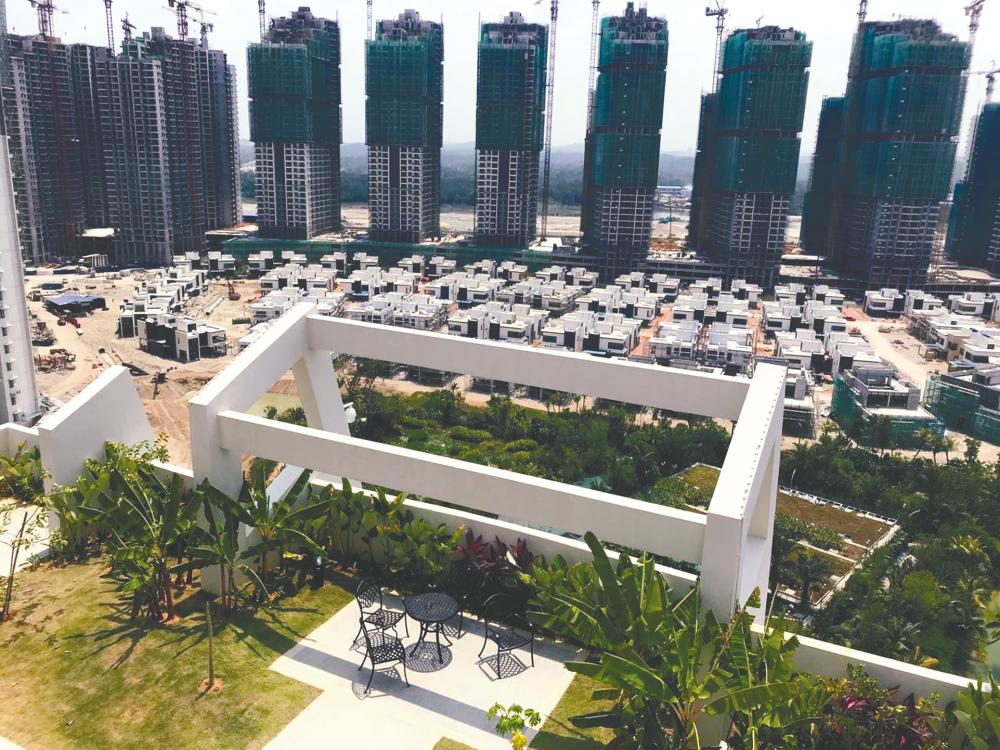PETALING JAYA: Malaysia’s property market is expected to remain resilient in the coming year despite the economic headwinds, as affordable housing and finding the right solutions to the property overhang will continue to be the main agenda of the government, according to the Valuation and Property Services Department (JPPH).
The department released nine reports today, including the Property Market Report, which showed that the property market is expected to rebound in tandem with the Malaysian economy.
“The close monitoring on the implementation of programmes under the National Housing Policy 2.0 (2018–2025) and various incentives introduced to promote home ownership among Malaysians, are expected to contain the overhang situation in the coming year,“ JPPH said in a statement.
It noted that it would continue to monitor and evaluate the expected impact of the pandemic on the property market.
“Many incentives are given by the government to cushion the impact on the property market. However, given the challenging market coupled with the downside in consumers and business community confidence, market activity and market absorption are likely to be slow,” it said.
In 2019, Malaysia’s property market recorded a marginal improvement, with a 4.8% increase in volume to 328,647 transactions and a 0.8% jump in value to RM141.4 billion, compared with 313,710 transactions worth RM140.33 billion in 2018.
The residential sub-sector led the overall property market, contributing 63.7%.
For residential property, there were 209,295 transactions worth RM72.42 billion recorded in 2019, denoting a 6% jump in volume and a 5.3% growth in value respectively as compared with 2018 (197,385 transactions worth RM68.75 billion).
By price range, demand continued to focus on RM300,000 and below, accounting for 61.7% of the residential transactions.
JPPH said the overhang and unsold situation took an upturn last year with 30,664 overhang units worth RM18.82 billion, marking a 5.1% decrease in volume and 5.2% drop in value respectively against 2018 (32,313 units worth RM19.86 billion).
Similarly, the unsold under construction and not constructed improved as the number dropped to 72,692 units and 16,774 units, down by 10.2% and 15.6% respectively.
Johor had the highest number and value of overhang units in the country with 5,627 units worth RM4.7 billion, accounting for 18.4% and 25% respectively of the national total.
However, the serviced apartment overhang continued to increase and formed the bulk of the property overhang. There was a total of 17,142 overhang units with a value of RM15.04 billion, up by nearly 51% in volume and 65% in value against 2018.
On the contrary, the unsold under construction and not constructed improved with volume declined to 33,827 units and 7,659 units, down by 9.3% and 40.5% respectively.
By state, once again Johor recorded the highest serviced apartment overhang with 71.2% share in volume (12,207 units) and 76.9% share in value (RM11.56 billion).
The retail sub-sector recorded a stable performance, recording an overall occupancy rate of 79.2%, attributed to decreased slightly from 79.3% recorded in 2018.
The overall performance of office sub-sector was less promising as the overall occupancy rate declined to 80.6% in 2019, down from 82.4% in 2018. Private office buildings recorded average occupancy rate at 74.8%, with Putrajaya recording the lowest occupancy rate at 37.6%.













